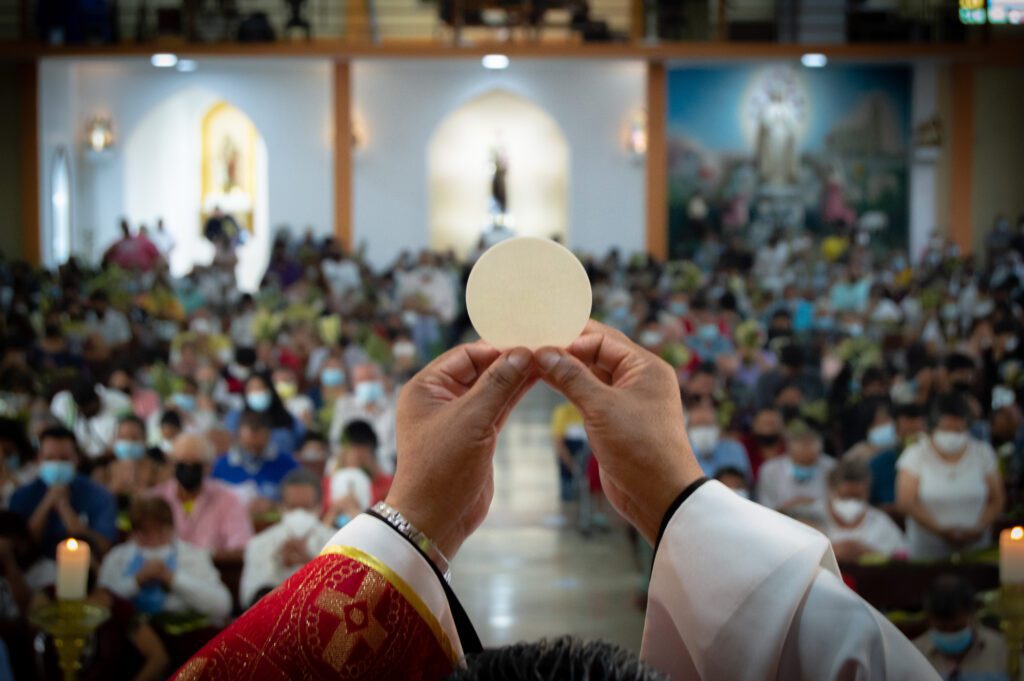
God’s vision to St. Peter centers on the command to eat animals that Jewish law did not permit them to eat. Peter understandably recoils when God tells him to slaughter the animals and eat them, because he is a practicing Jew, faithful to the covenant handed on to him. God continues with His command, telling Peter that “what God has made clean, you are not to call profane” (Acts 11:9). This convinces Peter to follow the men who come to him and preach to the Gentiles, bringing them into the New Covenant in Christ.
This was a shock to the Jews who confronted Peter, but they ultimately understood the vision and rejoiced. A people that was once considered unclean and cast out of the covenant was now allowed to enter into a relationship with God and receive the Holy Spirit, just as the Jews had been receiving the Spirit. Although it would have been understandable to view the Gentiles as outside of the covenant, God makes it clear that He wants to let them in.
This can be a good lesson for us in other areas of our spiritual lives, placed as we are in a Church with so many different expressions of faith and worship. To mention just one example, Roman Catholicism has two different expressions of the liturgy in the Novus Ordo (Mass following the Second Vatican Council, often in English) and the Traditional Latin Mass. Both of these are practiced throughout the world, and both communicate the means of grace necessary for Catholics to fulfill their Sunday obligation and receive our Lord in Holy Communion.
But in the face of these and many other differences, the proper response is often to remember God’s words to Peter. If we know that something or someone is from the Lord, then we should respect that and not hinder it. These situations will come in different ways, depending on our own personalities and preferences. Some people may find certain styles of preaching frustrating, while others may find them helpful. Some may find the leadership style of a particular pastor effective, while others may find it ineffective.
Not that these are things that “God has made clean” in the sense of sacred, but we can still use the words as an opportunity to appreciate legitimate diversity in the life of the Church. We aren’t asked to tolerate sin or wickedness. Aside from this, however, differences of opinion, style, and preference should not be stumbling blocks for us in the Christian life.
Daily Reading
Sixth Sunday of Easter
Reading 1 Acts 10:25-26, 34-35, 44-48 When Peter entered, Cornelius met himand, falling at his feet, paid him homage.Peter, however, raised him up, saying,“Get up. I myself am also a…
Saint of the Day
Saint Angelus of Jerusalem
Angelus, born in 1185 Jerusalem to Jewish parents, was among the earliest Carmelites in Sicily. Killed by non-believers, he’s Sicily’s revered patron.
The post Saint Angelus of Jerusalem appeared first on uCatholic.



